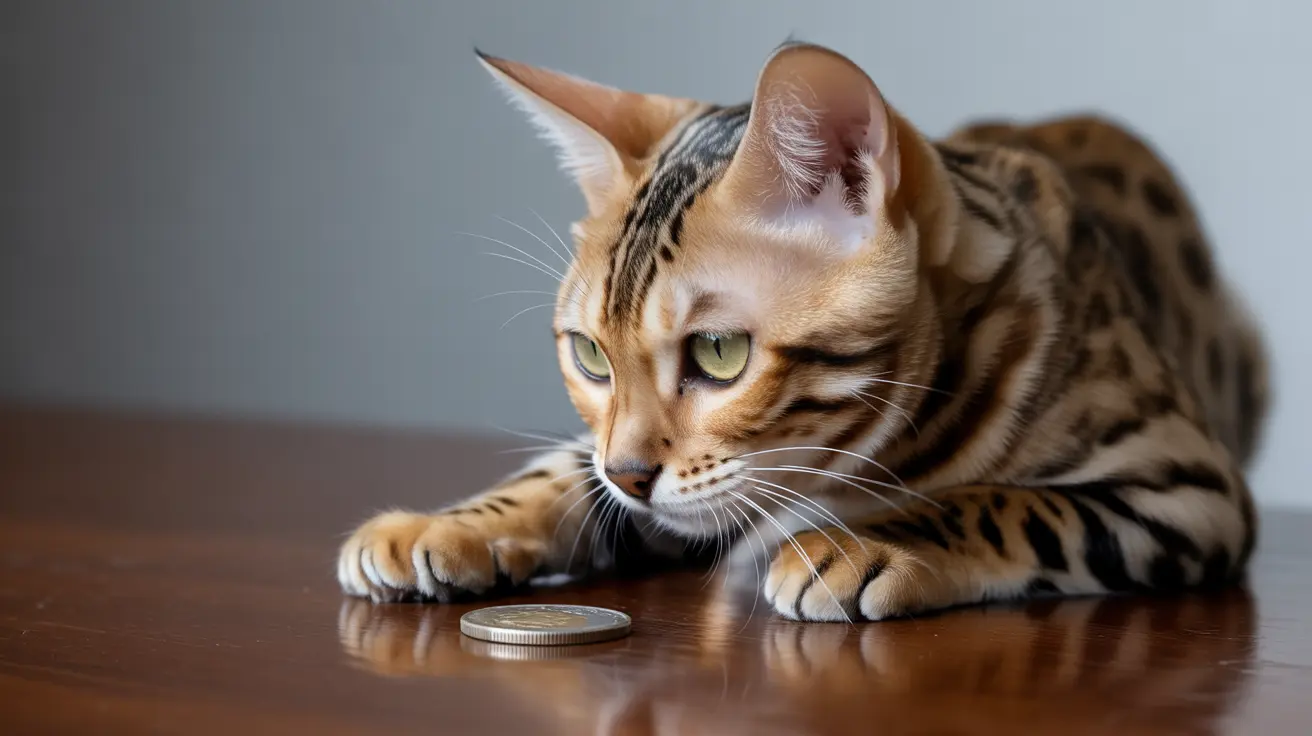Understanding Zinc and Your Cat's Health
Zinc plays a vital role in your cat's health, but the relationship between cats and zinc is complex. While cats need small amounts of this essential mineral for normal growth, immune function, and overall health, zinc can quickly become dangerous if consumed in excess. Understanding the delicate balance between necessity and toxicity is crucial for every cat owner.
As a responsible pet parent, you might wonder: can cats have zinc? The answer is yes, but only in carefully controlled amounts. Cats naturally obtain the zinc they need through properly balanced commercial cat food or well-formulated raw diets, making supplementation rarely necessary for healthy cats.
The Essential Role of Zinc in Feline Health
Cats require zinc as a trace mineral for various bodily functions. According to the National Research Council, kittens need approximately 12.5 mg of zinc per 1000 kcal of food, while adult cats require slightly more at 18.5 mg per 1000 kcal to maintain optimal health.
This mineral supports:
- Healthy skin and coat maintenance
- Proper immune system function
- Normal growth and development
- Wound healing
- Protein synthesis
Understanding Zinc Toxicity Risks
While zinc is necessary, exposure to excessive amounts can quickly become life-threatening. The most common sources of zinc toxicity in cats include:
- Modern pennies (minted after 1982)
- Galvanized metal objects
- Zinc-based ointments and creams
- Metal toys or jewelry
- Some dietary supplements
Recognizing Zinc Poisoning Symptoms
Early detection of zinc poisoning can be lifesaving. Watch for these warning signs:
Initial Symptoms
- Vomiting
- Loss of appetite
- Lethargy
- Diarrhea
- Depression
Advanced Symptoms
- Jaundice (yellowing of skin and eyes)
- Pale or yellow gums
- Orange-colored urine
- Rapid breathing
- Weakness
- Seizures
Treatment and Emergency Response
If you suspect zinc poisoning, immediate veterinary care is essential. Treatment typically involves:
- Removal of the zinc source through surgery or endoscopy
- Intravenous fluid therapy
- Possible blood transfusions
- Chelation therapy
- Supportive care and monitoring
Prevention Tips for Cat Owners
Preventing zinc toxicity is far better than treating it. Follow these essential safety measures:
- Keep coins and metal objects secured
- Store zinc-containing products out of reach
- Use pet-safe food and water bowls
- Monitor your cat's environment for potential hazards
- Consult your vet before using any supplements
Frequently Asked Questions
How much zinc is safe for my cat to consume without causing toxicity?
Cats require approximately 18.5 mg of zinc per 1000 kcal of food. Commercial cat foods are formulated to meet these requirements safely. Additional supplementation should only occur under veterinary guidance.
What are the common symptoms of zinc poisoning in cats?
Common symptoms include vomiting, loss of appetite, lethargy, diarrhea, jaundice, pale gums, and in severe cases, seizures or collapse.
How can I prevent my cat from getting zinc poisoning?
Keep zinc-containing objects (coins, metal items) out of reach, use pet-safe bowls, and store zinc-based products securely. Ensure your cat's diet comes from reliable commercial sources.
What should I do if I suspect my cat has ingested a zinc-containing object?
Seek immediate veterinary care. Don't wait for symptoms to appear, as early intervention significantly improves outcomes.
Can a cat recover from zinc poisoning, and what are the chances of full recovery?
With prompt treatment, most cats recover within 2-3 days of zinc source removal. The prognosis depends on the amount ingested and how quickly treatment begins.
Conclusion
While zinc is essential for your cat's health, natural dietary sources through quality cat food typically provide all they need. The key is preventing accidental exposure to toxic amounts through careful household management and awareness of potential sources. If you ever suspect zinc poisoning, don't hesitate to seek immediate veterinary care – quick action could save your cat's life.






